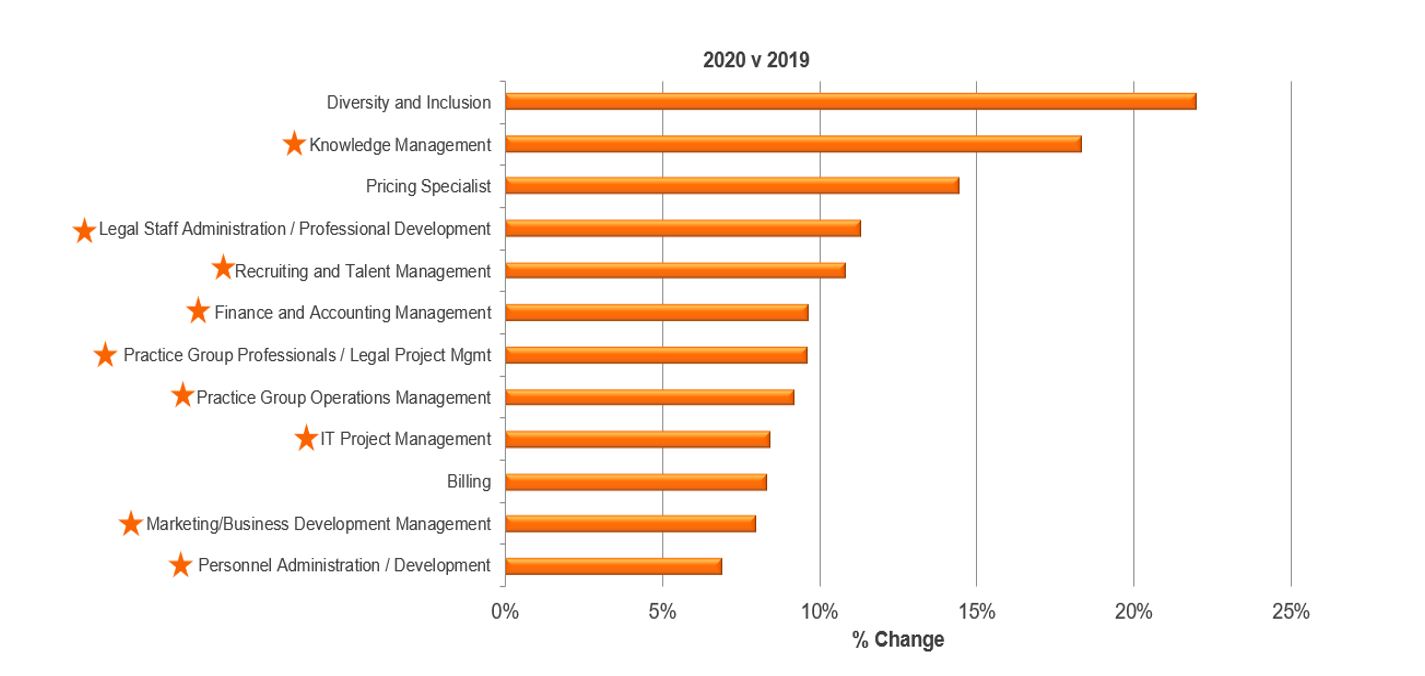Significant demographic changes to the workforce and occurring and will continue over the next decade, changing the generational make up of workplaces across all industries.
By 2025, Millennials will dominate the workforce in both the legal and accounting professions. Gen Z will comprise much of the under-30 workforce, and fewer Baby Boomers will be in the workforce. Gen X and Millennials will be filling the leadership ranks, and undoubtedly, the hyper-need to retain top talent will continue.
With all these changes, all professional service firms — but especially law and accounting firms — need to prepare for this generational mix. Indeed, employers need to act now, and there are several steps they can take immediately, including:
Evolve your culture and benefits to meet Gen Z expectations
By 2025, Gen Z will make significant impacts to organizational culture, benefits, and skillsets as workplaces adjust to their stated values of flexibility, recognition of each person’s uniqueness, personal well-being, entrepreneurial attributes, and desire to learn new skills.
Gen Z, along with older generations, will expect flexibility as a norm from their employers in terms of where, when, and how works gets done, though they desire and understand the importance of learning, communicating, and relationship-building in person. They will demand more personalized benefits structures — such as offerings around pet care, educational debt, and what’s relevant to their lifecycle stage. As the most diverse generation in history, Gen Z will continue to expect strong diversity, equity, and inclusion with respect and recognition for all aspects of their personal identity. That is crucial for recruitment and retention.
One advantage that employers can leverage is Gen Z’s preference for stability. Given the threats of terrorism since the early 2000s, the recent pandemic, and two big recessions in their lifetimes, Gen Z workers desire to stay in their jobs rather than job-hop. However, they will readily leave for better cultures and respect, if not treated well, or if they are disrespected or stifled by lack of growth and opportunity.
Invest in special roles and modern technology
Because of advances in technology, new specialist roles will emerge in these professions, such as digital-first roles in product management, pricing, and knowledge management. In fact, we are already seeing some of this. In large law firms, for example, of the top 12 roles in which firms were making the greatest investments in 2020-21, nine are in specialist roles in business services and support functions, such as those in finance, project management, marketing, professional development, diversity, equity & inclusion (DEI), and other HR roles, according to the Thomson Reuters Peer Monitor’s Staffing Ratio Survey.

By 2025, the workforce will contain an increased mix of educational backgrounds and skills outside of law and accounting. Employers will then need to identify and recruit individuals with adjacent skills, as accounting firms have been doing for several years. Military veterans, for example, may not have the same background as an open job description, but many have the necessary experience and skills to do the job. Further, employers may need to invest in additional training and skill development to get recruits ready to perform their jobs, but it will pay off in loyalty and dedication.
To retain talent in these specialist roles, employers need to ensure that individuals in these and all business support roles are just as respected as the lawyers and accountants. For example, the term non-lawyers should be abolished; and law firms, especially, will need to address the historical cultural phenomenon around treating colleagues in valuable affiliated functions as second-class citizens.
Expand benefits to close structural gaps in childcare
Employers need to take additional steps to address structural challenges in childcare in order to keep working parents in full-time jobs. Otherwise, the desire to cut back on their hours will grow and will put more pressure on employers to offer more flexibility.
This is something that surfaced during the pandemic as a potential tsunami of change. Fortunately, there are already ways that employers can leverage employee benefits to help tackle these childcare challenges.
Compensate for time spent mentoring
Seasoned talent with 20-plus years of experience will continue to be a smaller portion of the workforce. Yet, without the support of its seasoned workers, employers will struggle with retention of institutional knowledge and its transfer to younger employees.
That means employees need to see succession planning and changes to the compensation systems as top priorities now to anticipate the near-future business and workforce needs. Law and accounting firms, especially, must prepare to financially support mentorship and transitioning client relationships and thus overcome the desire among some lawyers to hoard knowledge and clients.
Increase investment in managerial skills development
Investing in people management skills is another action employers need to make now in order to be ready for the business and multi-generational workforce requirements. The relationship between supervisor and individual contributor is one of the strongest influencers of work engagement, career progression, and skills development.
Matter or engagement team leaders must have the right skills to mentor well and give constructive feedback, as well as the ability to share substantive ways to improve. Employers not making these investments in their workforce are likely to experience higher attrition of their top talent.
The bottom line is that legal and accounting employers need to be more people-centric. Without adapting, employers focused on returning to the ways things were pre-pandemic, are likely to be the biggest losers in the hyper-competitive war for talent now and in the future.







